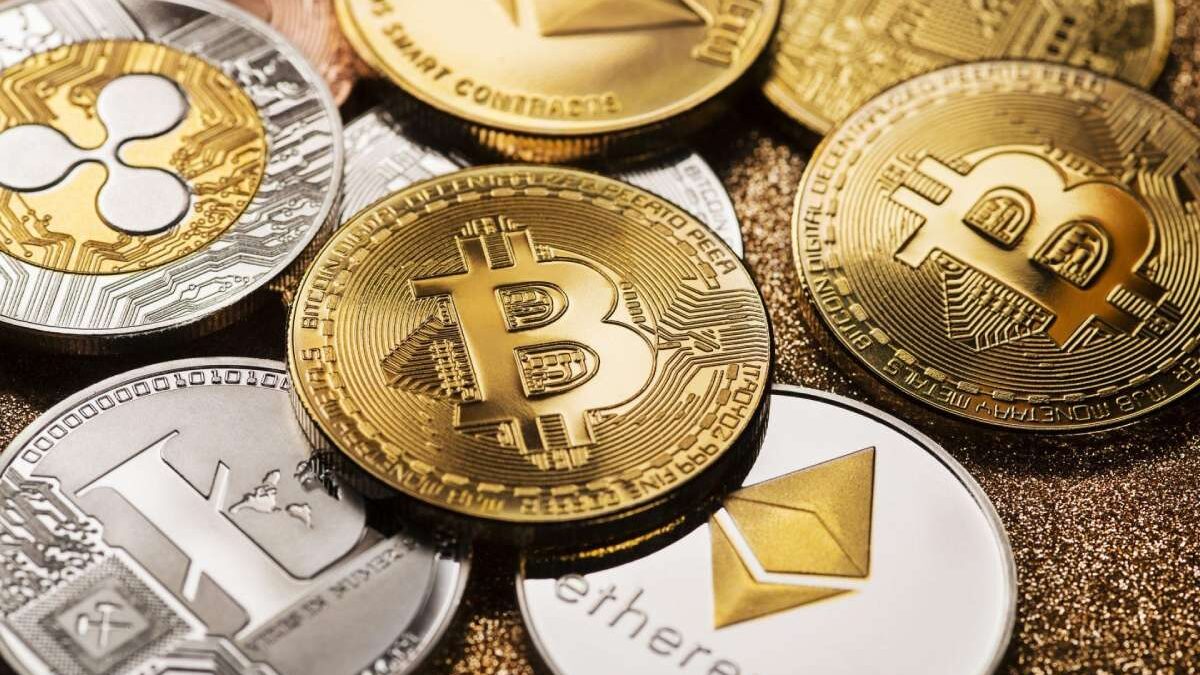Cryptocurrency is a highly popular investment, particularly among younger people, but much of the terminology may confuse off-putting beginners. It might be difficult to get started with cryptocurrency if you don’t know what gas is, what is HODL, who a whale is, or what the disparity between Bitcoin and blockchain is.
Cryptocurrency is more than simply a different investing choice; it reflects a whole other universe than traditional equities and bonds. Even for experienced traditional investors, understanding the basics takes time due to unfamiliar jargon, developing technology, and keeping up with memes and tweets.
Before investing in cryptocurrency, we advise building an emergency fund, paying off high-interest loans, and establishing a standard retirement savings plan. And, as previously said, you should only invest what you are ready to lose in cryptocurrency, with experts recommending that you allocate no more than 5% of your portfolio to these digital assets.
However, another item you should include on your checklist is at least a basic grasp of what you’re getting into, such as how crypto differs from conventional investing methods and the many factors that can impact the market value.
Before you begin, like with any investment, it is critical to understand exactly what global asset you are investing in. This is especially true for a speculative — and continuously evolving — asset like cryptocurrency. It is much easier to do this if you are familiar with the words often used in this world. Whether you want to acquire cryptocurrencies now or later, knowing the terminology is a smart place to start. To make sure you don’t be left out in the cold, here’s a beginners guide to getting started with cryptocurrencies.
Table of Contents
Crypto Terms:
Here are some terminology and jargon to assist newcomers in grasping the world of cryptocurrency investment.
Mining:
This phrase can be a little perplexing at times. It looks like exploding mountains create the coins. No, they are not. Mining is the process of creating and distributing new crypto coins. Solving complicated mathematical problems necessitates the use of powerful computers. Users who complete this task get coins as a consequence. Finding the best cryptocurrency to mine is a hard task, though. You need to make comprehensive research before start mining. They may then trade the coins directly with their peers or through internet exchanges.
Of course, most traders do not mine or create new coins. Instead, much like any other asset in your financial portfolio, you may purchase and sell tokens from other individuals.
Whale:
Whale accounts are those that possess a huge amount of a coin and have the ability to affect the market on their own. Most well-known and popular cryptocurrencies have a slew of whales that can truly throw their “weight” around.
Indeed, there are prominent websites that follow the activities of whales to increase transparency in the bitcoin market.
Many whale accounts are early investors or huge money, and following what they’re doing is a good method to predict how the cryptocurrency market will move.
Blockchain:
The bitcoin transaction relies heavily on a peer-to-peer network. Blockchain is a digital database that records each bitcoin transaction. There is no risk of a hacker gaining access and corrupting the information kept on the blockchain because there is no central database, and everyone may view the blockchain facts from anywhere.
Gas:
It is the charge of completing a bitcoin transaction. The fee covers the expense of paying a “miner” (the person who solved the equation and earned a coin) to search for and receive cryptocurrency on your behalf. Its size is determined by how soon you want the transaction to be completed.
Address:
It is the precise location to which bitcoin is transferred. It functions similarly to a bank account but solely contains cryptocurrency. For maximum security, each address, which consists of a string of alphanumeric characters, is used only once to store crypto assets. This address also assists a receiver in proving ownership of the bitcoin that has been delivered to them.
Fiat:
This phrase is most commonly used to contrast cryptocurrencies with normal currency (fiat), which is backed and issued by the government. It provides central banks with greater influence over the economy. Currencies, such as the US dollar and the Indian rupee, are examples of fiat money.
Altcoin:
It is basically anything or any other coin that isn’t Bitcoin. Altcoins can range from the second-most popular coin, Ethereum, to any of the hundreds of coins with extremely little market value. According to experts, you should primarily invest in the larger, more popular cryptocurrencies. Also check – How to Buy Defi Coins
Block:
These are the data sets within a blockchain. Blocks on cryptocurrency blockchains are made up of transaction records created when users buy or sell currencies. Each block can only store a certain amount of data. When it hits that limit, it creates a new block to continue the chain.
Crypto Wallet:
A wallet is where you keep all of your bitcoin currencies. It is encrypted, and if you forget your password, you will lose access to your wallet. Because cryptocurrency is founded on the concept of decentralized distribution, the only way to do so is to hold individuals accountable for their passwords.
Wallets are classified into two types: cold and hot. While a hot wallet is stored online and facilitates online trading, a cold wallet is similar to an offline safe to keep your valuables secure.
Hot Wallet:
A bitcoin wallet that is software-based and connected to the Internet. While digital wallets are more convenient for immediately accessing your crypto, they are more vulnerable to hacking and cybersecurity threats than offline wallets, just as data stored on the cloud may be more readily accessed than those kept in a safe at home.
Cold Wallet:
This is a safe way to keep your Bitcoin offline. Many cold wallets (also known as hardware wallets) are physical devices that resemble USB drives. This type of wallet can help secure your cryptocurrency from hackers and theft, but it also has its hazards, such as losing it along with your cryptocurrency.
Decentralization:
The distribution of power away from a central location. Blockchains have typically been decentralized since they require the majority permission of all users to function and make changes rather than a centralized authority.
Decentralized Applications:
These are the developer-created applications installed on a blockchain to carry out operations without the use of mediators. Decentralized finance operations are frequently carried out with the help of decentralized applications. Ethereum is the primary network that supports decentralized finance activity.
Fork:
When its users change the rules of a blockchain, changes to a blockchain’s protocol frequently result in two new paths: one that follows the existing regulations and another that branches off from the prior one. (For instance, a Bitcoin fork resulted in Bitcoin Cash.)
HODL:
Though the word began in 2013 as a user mistake on a Bitcoin forum, it now stands for “Hold On for Dear Life.” It refers to a passive investing technique in which investors acquire and hold cryptocurrencies rather than trade them to expect their value to rise.
Market Capitalization:
In the context of cryptocurrencies, the market cap refers to the total value of all coins produced. The market cap of a cryptocurrency may be calculated by multiplying the current number of coins by the current value of the coins.
NFTs:
NFTs or Non-fungible tokens are value units used to represent ownership of one-of-a-kind digital objects such as art or collectibles. The NFTs are often stored on the Ethereum blockchain.
Public Key:
It is the address of your wallet, which is comparable to your bank account number. You may provide people or institutions with your public wallet key so they can send you money or withdraw money from your account when you approve it.
Private Key:
The encryption code allows you to access your cryptocurrency directly. Your private key, like your bank account password, should never be shared.
Smart Contract:
A computational software that automatically enacts the conditions of a contract based on its code. The capacity of the Ethereum network to execute smart contracts is one of its primary value propositions.
Token:
A value system on a blockchain generally has a value proposition other than merely a value transfer (like a coin).
Final Words
Those considering investing in cryptocurrencies should understand that acknowledging industry terms can be advantageous. Would-be traders can enhance their chances of reaching their investing objectives by conducting the appropriate study and understanding this knowledge.
Interesting in learning more about cryptocurrency? You can visit AskCrypto, a cryptocurrency forum where you can get more info about all the callouts, crypto trading, daily updates for the crypto market, and much more.
Also Read: Things to Consider While Choosing Multi-Level Marketing Software for Your Business
TheITbase
Related posts
Hot Topics
Metaverse Platforms for Virtual Workspaces
Ever felt like your office is stuck in the Stone Age? Tired of endless Zoom calls that feel about as…
IoT Protocols: The Language of Smart Devices
Ever wonder how your smart fridge talks to your phone? Or how does your fitness tracker know to buzz when…



